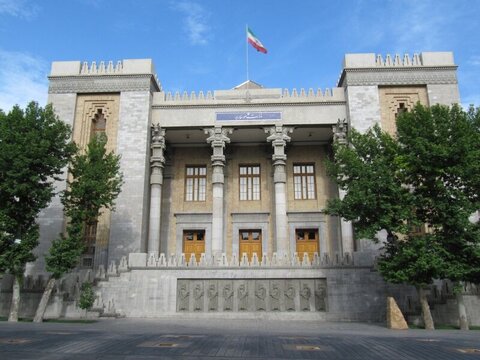Iran (IMNA) - The Iranian Foreign Ministry issued a statement on Friday saying, "The Islamic Republic of Iran reserves the right to take any any necessary steps and stresses the full responsibility of Afghanistan in this respect."
The announcement comes a day after the Afghan government released a declaration over water rights in the Hirmand River, popularly known as Helmand. The announcement, according to Tehran, featured "contradictory and incorrect information."
Iran and Afghanistan inked a pact in 1973 that "clearly and unambiguously" stated the Iranian side's water rights, according to a foreign ministry statement. "This is a legal, objective, and definite right, and Afghanistan is committed under Article 5 of the Treaty to providing the aforementioned right and not taking any action that fully or partially deprives Iran of its water rights."
According to the statement, Afghan administrations have failed to follow the treaty's duties to fully collaborate with Iran on the release of the water flow and the fulfillment of Iran's water rights during the previous eighteen months.
Any comments on the depletion of Hirmand's water would not be acknowledged, the statement added, "so long as the Islamic Republic of Iran's experts are not permitted to visit the route and upstream of Hirmand in accordance with the Treaty, particularly Article 5 of Protocol No. 1 of that Treaty."
It emphasized Iran's focus on technical cooperation and exploration through the two sides' water commissioners, as well as its demand for a "detailed" evaluation of the water situation in Hirmand and fulfillment of the Iranian side's share in accordance with the treaty.
The Afghan authorities' refusal to cooperate in deciding the locations of water delivery and setting up technical systems related to water level measurement, along with the ongoing filling of the diversionary Kamal Khan dam, deviation from the Hirmand River's natural course, and disruption of the river's natural conditions, among other things, constitute clear violations of Articles 3, 5, and 6 of the Hirmand Treaty, according to the Iranian Foreign Ministry.
According to the statement, Iran has always maintained the notion of good neighborliness and neighborly rights.
The Hirmand River is Afghanistan's longest watercourse. It begins in the Hindu Kush Mountains west of Kabul and runs southwest till it reaches the Hamoun marshes in Iran's Sistan and Baluchestan Province.


Your Comment